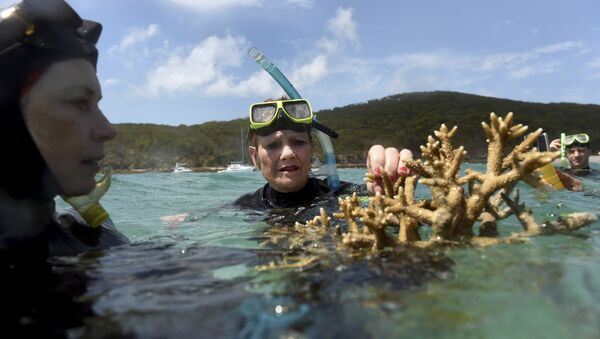The study showed that the damage mostly came from nitrogen derived from sewage dumped by community sewage plants and septic tanks into the Togcha River watershed and flowing downstream to the reefs.
"For our study, we focused on nitrogen, which is commonly used in pollution studies because different sources of nitrogen have distinct ratios of heavy nitrogen (15N) to light nitrogen (14N)," Kim explained in the study, published in the journal Marine Pollution Bulletin.
"Fertilizer, for example, has a low ratio of heavy nitrogen to light nitrogen. Sewage, on the other hand, has a higher ratio of heavy nitrogen to light nitrogen. By analyzing the ratio of heavy to light nitrogen in the biological material, we can figure out where most of the nitrogen came from. Often, it's either fertilizer or sewage, the two common sources of nitrogen in coastal environments."
Kim expressed concern over the impact of pollution and climate stress on coral reefs in Guam, but pointed out that there still are ways to neutralize the negative effects.
"In general, reefs are resilient and can come back if the stressor is removed. If we can clean up our coastal waters, perhaps the corals and other creatures can better adapt to climate change," he said.
"Technology is available to remove nutrients like nitrogen from sewage, although it's very expensive… But we have to weigh the costs of upgrading treatment plants against the costs of losing the reefs and the ecosystem. With the proper accounting, the math generally favors paying to protect the coral reefs and other coastal ecosystems."






